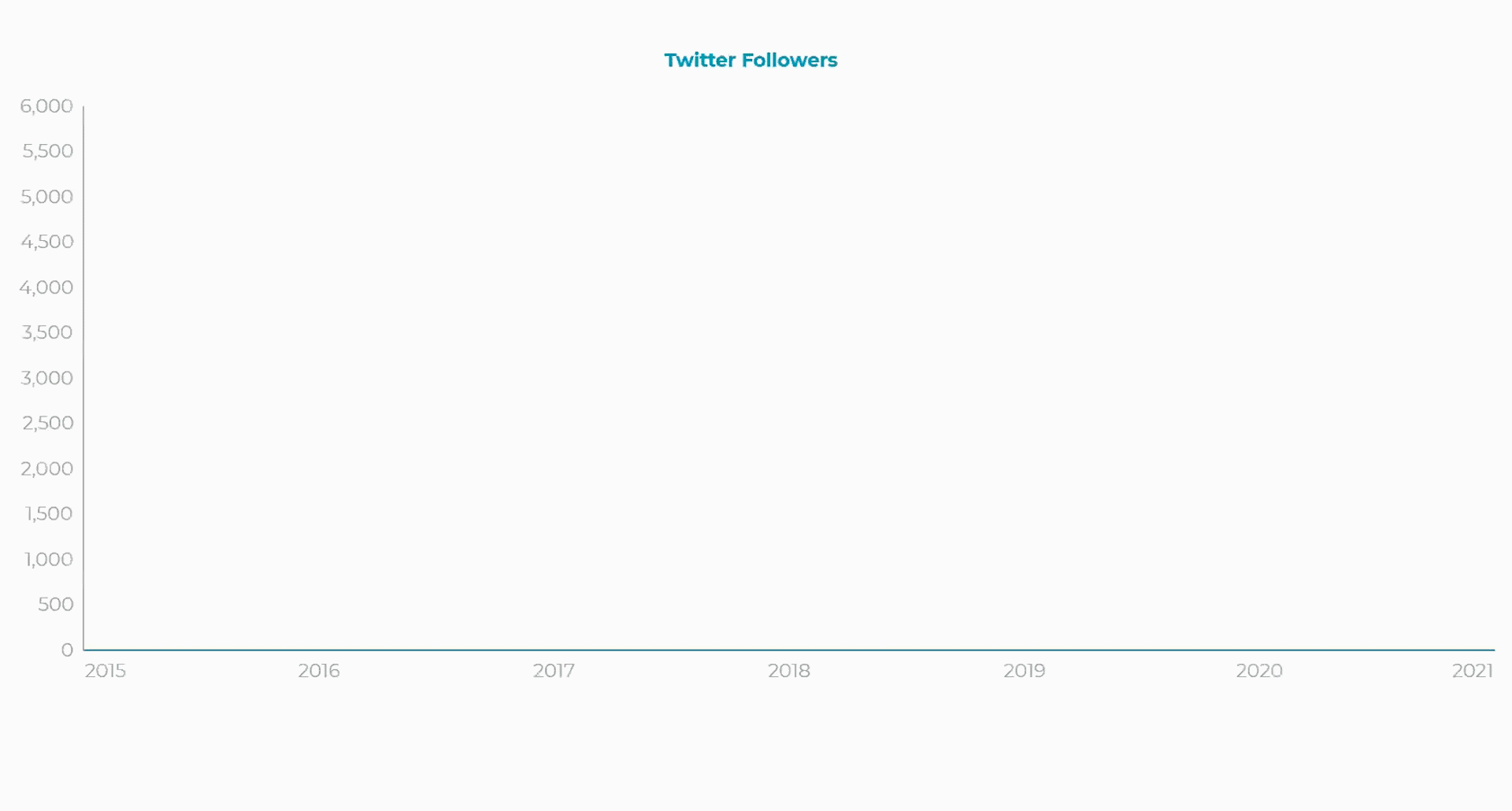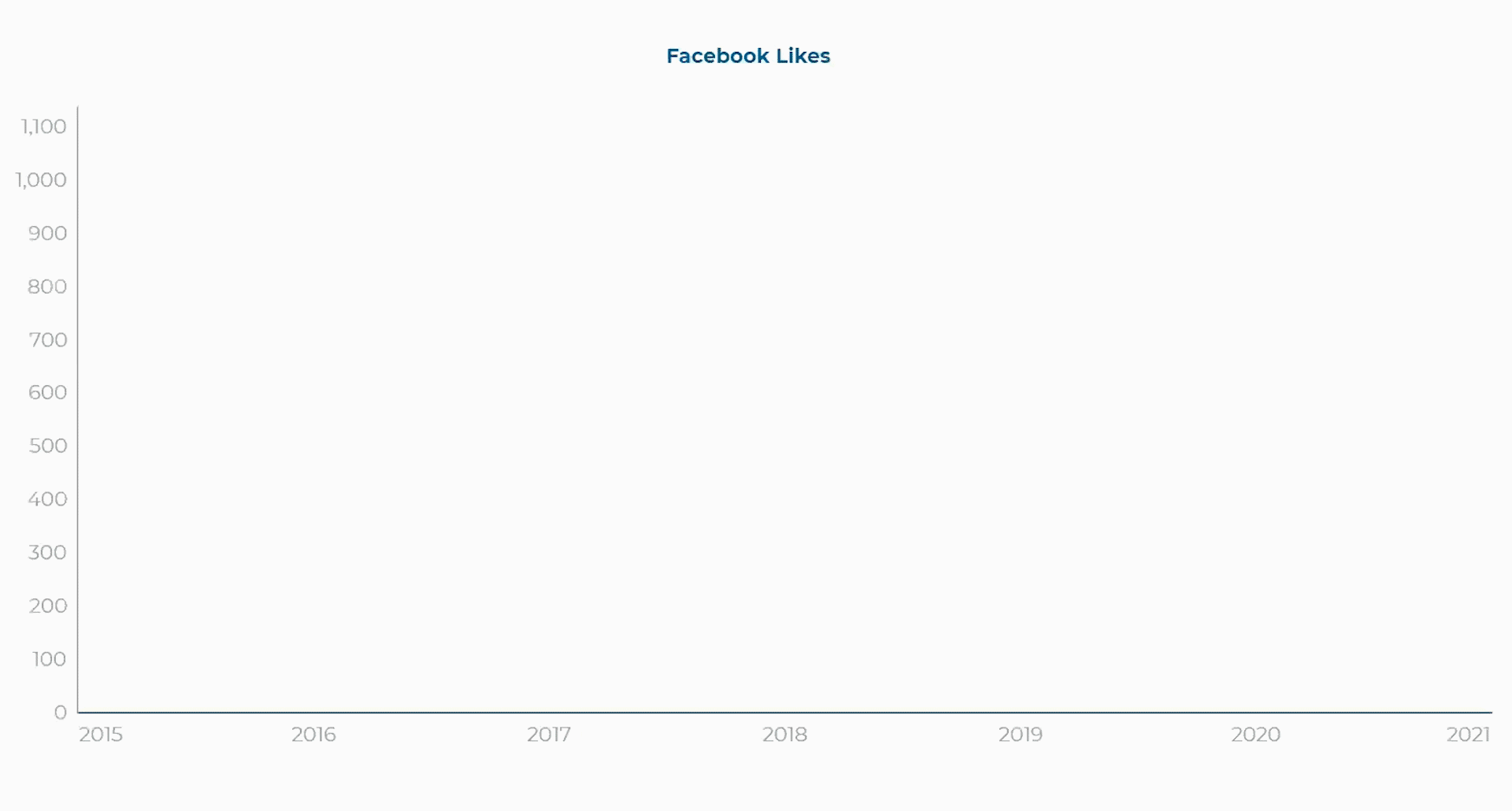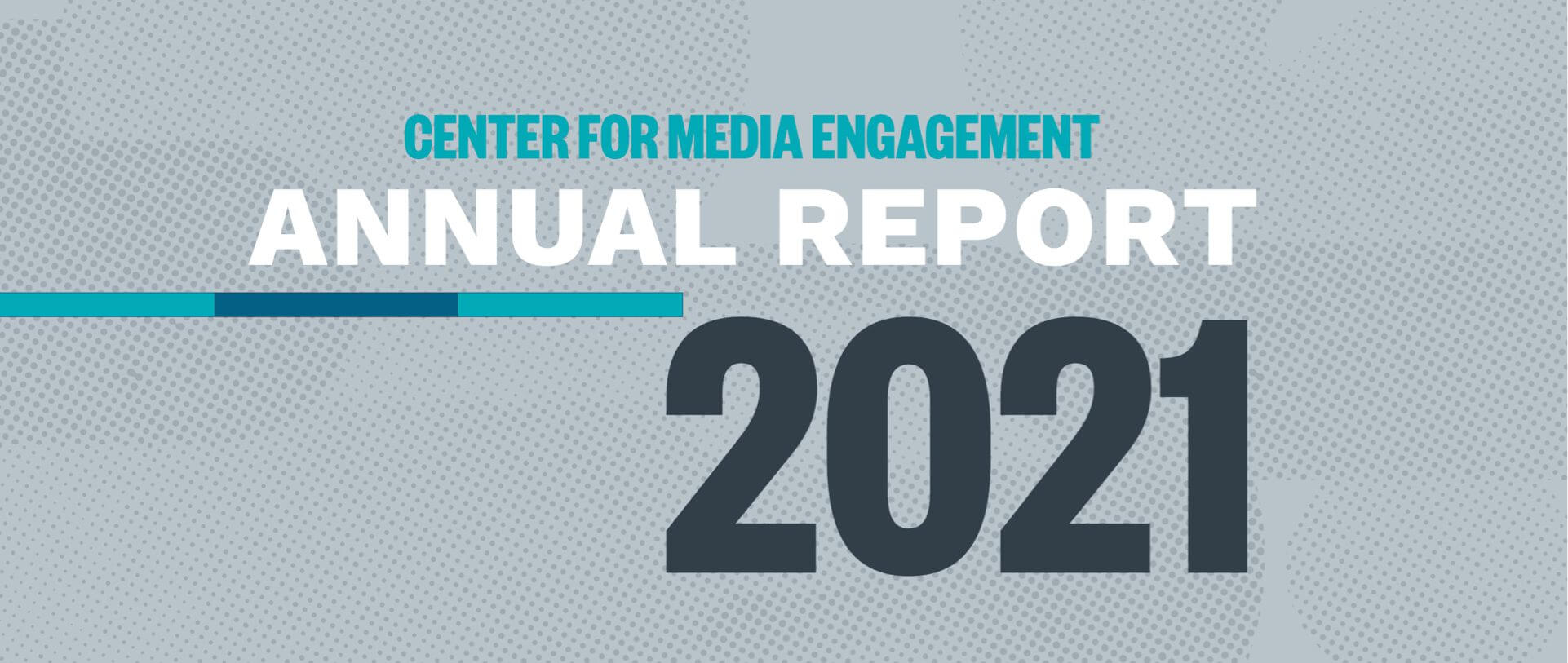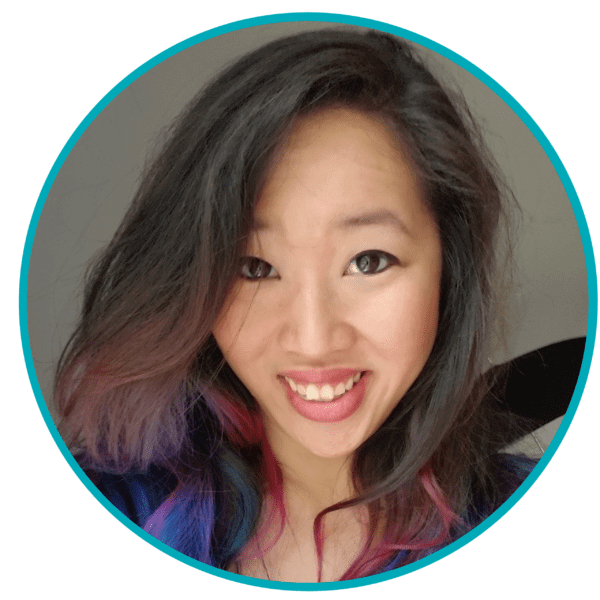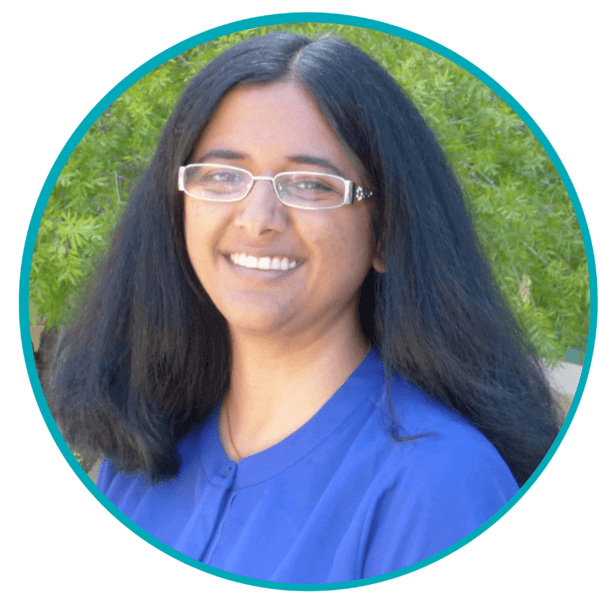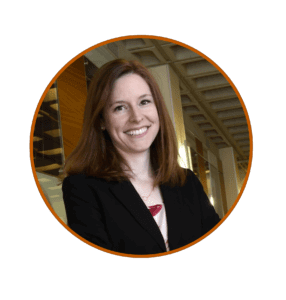
From the Director
DEAR FRIENDS AND SUPPORTERS,
2021 has been an uneven year. For some, this year’s developments have brought a sigh of relief. For others, the year has raised new anxieties. For most, I suspect, it has been a mix of both.
Through it all, the media have played a pivotal role: fueling political activity; providing information (and sometimes misinformation) about vaccines, new variants, and the politics of the day; and offering a space for people to connect and support one another.
As I reflect on everything that has happened over the course of the past year, the need for the Center for Media Engagement seems sharply obvious. For democracy to function, the public needs an information ecosystem that helps them to learn, that enables the exchange of ideas, and that facilitates people working together. Much is amiss. Without people and organizations trying to make it better, nothing will change. It is with this steadfast dedication that the Center for Media Engagement conducts research, develops tools, and hosts workshops and conferences to share what we’ve learned and to learn from others.
Over the past year, there is much to be proud of. Our work has directly influenced newsroom practices, pedagogy in college classrooms, platform strategies, and behaviors among science communicators. Research from the center has been featured in numerous news articles and has informed policymakers. Our conferences and workshops have reached thousands. The center continues to grow and is now home to 10 faculty investigators and an increasing number of engaged, dedicated, and amazing staff and students.
And yet, there’s an urgency to what we have not yet accomplished and the challenges facing the media environment that require more attention. In the year ahead, be on the lookout for new strategies for newsrooms looking to connect with their audiences, new research on how scientists can work with the media and vice versa, new case studies on the latest ethical challenges facing the media, new insights into how to combat misinformation circulating on encrypted messaging apps, and new information on the effects of Facebook and Instagram.
All of this work could not be done without you. We are so grateful for everyone who supports the center in ways big and small. To those who engage with our work, thank you. To those who push us to think in new ways, thank you. To those who support us financially, thank you.
We are grateful for generous funding from organizations like the John S. and James L. Knight Foundation, Democracy Fund, the William and Flora Hewlett Foundation, Omidyar Network, Open Society Foundations, and the Rita Allen Foundation. The Moody College of Communication and The University of Texas facilitate our work in innumerable ways, and we are deeply appreciative.
As we look to the year to come, please accept my best wishes and deepest thanks on behalf of everyone at the Center for Media Engagement,
Natalie (Talia) Jomini Stroud, Ph.D.
Director, Center for Media Engagement
19
Research Reports
published in the fields of journalism, propaganda, and science communication
14
media ethics case studies
published and released for free educational use

22
op-eds and blogs
written for trade and media organizations
28
peer-reviewed articles
published in journals

28
newsrooms
collaborated with us on research

4,333
citations
of our team’s work
14
events and workshops
hosted by our center

60+
speaking engagements
featuring our team members

250+
media mentions
showcasing our expertise

10
team members
welcomed to the center
Noteworthy Events
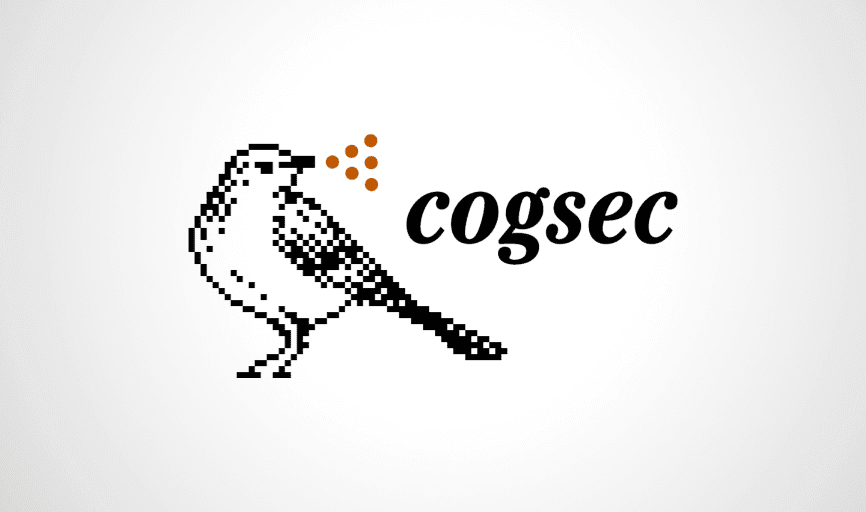
COGSEC
CME hosted the Cognitive Security Conference (COGSEC), an event focused on practical skills related to investigating and thwarting media manipulation and disinformation campaigns online. Workshop videos are available on the COGSEC site.
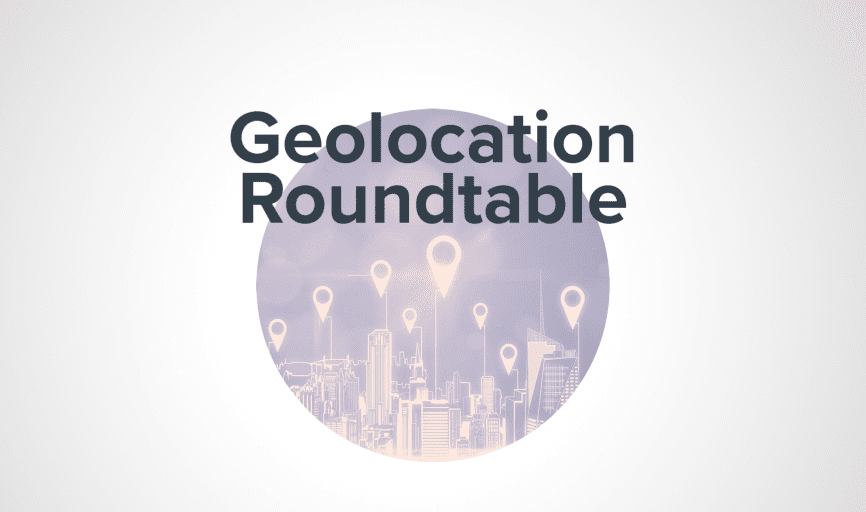
Geolocation Roundtable
CME and the Surveillance Technology Oversight Project (S.T.O.P.) hosted a roundtable about mass surveillance in the age of mass protest. Videos from our experts and a full report on the findings are available on our Understanding Geolocation page.
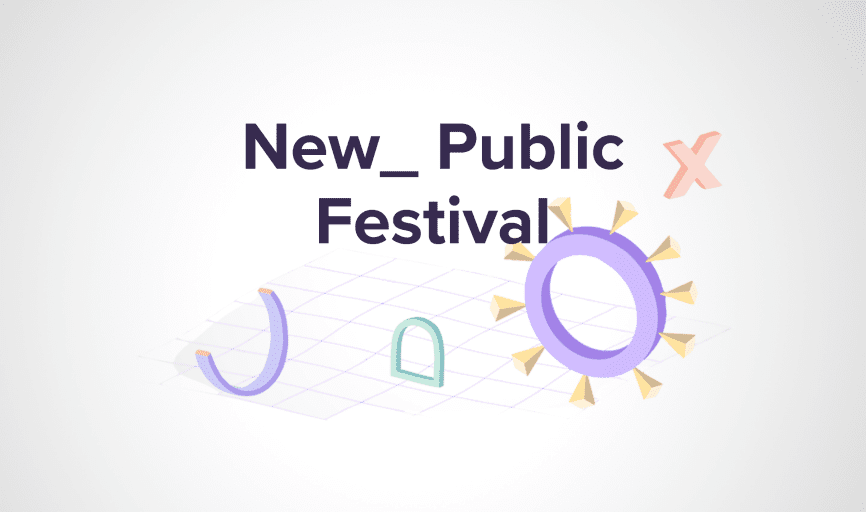
New_ Public Festival
CME co-sponsored the New_ Public Festival, an event that envisioned the future of digital public space. During the festival, we released the results of a two-year study, the largest global survey of social media superusers to date. See the festival stream here.
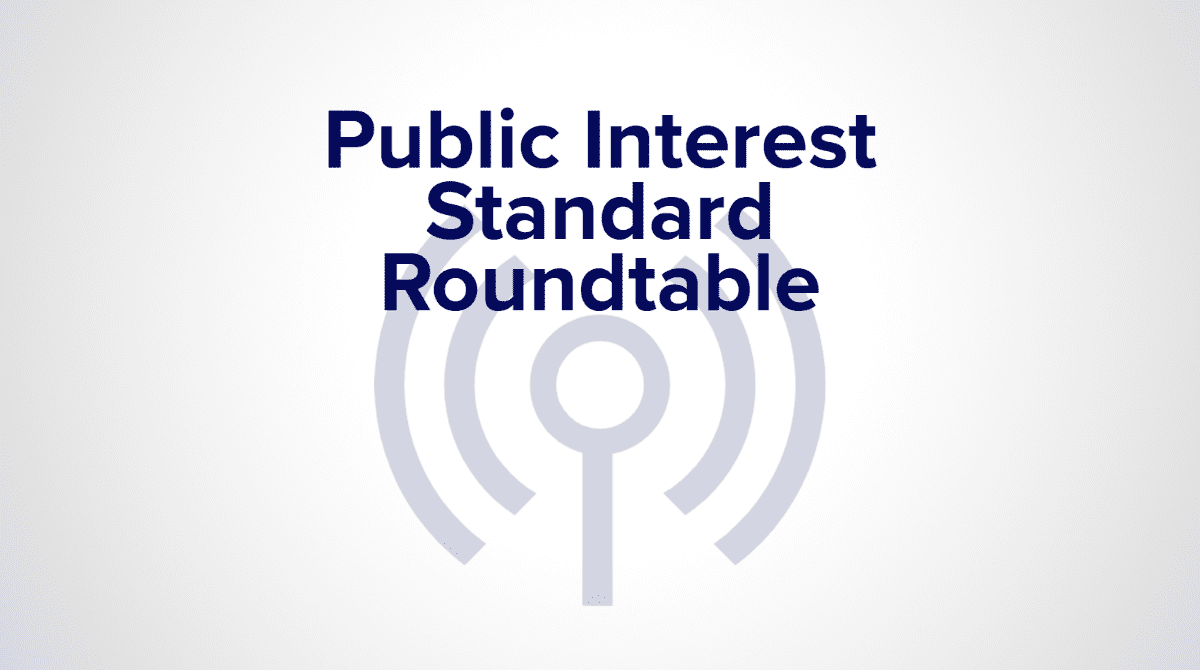
Public Interest Standard Roundtable
CME hosted a roundtable to discuss the current state of the public interest standard and improvements that need to be made. Videos from our panel of experts, an interactive timeline, and a full report of the finding are available on our Public Interest Standard page.
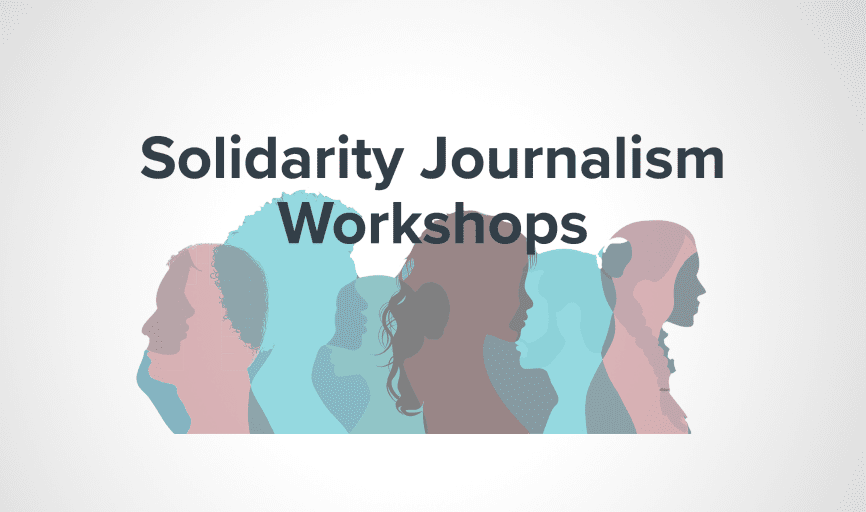
Solidarity Journalism Workshops
CME presented two workshops that covered solidarity reporting in Afghanistan and the connection between journalism and advocacy. Additional Solidarity Journalism materials are available here.
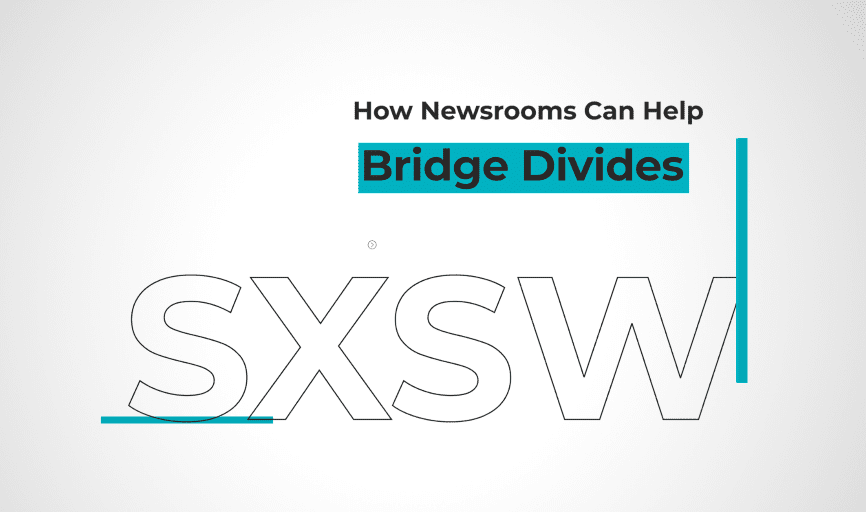
SXSW
CME presented “How Newsrooms Can Help Bridge Divides” at SXSW. Panel videos are available on our connective democracy page and a write-up of the panel takeaways is available here.
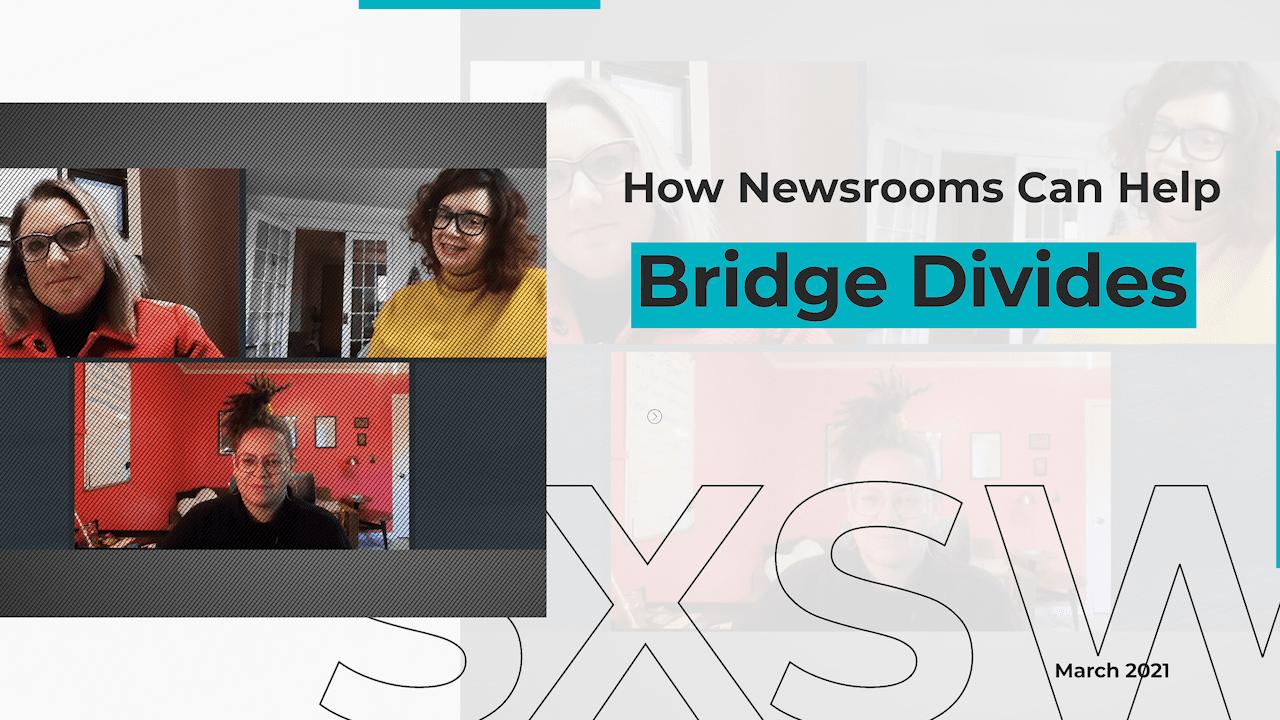

Journalism
The journalism program at the Center for Media Engagement conducts research alongside newsrooms, social media platforms, and organizations looking to influence media practices for the benefit of democracy. The studies resulting from these collaborations provide insights into tools, practices, and strategies that benefit the media landscape. In the year ahead, the team is working on projects about how newsrooms can cover marginalized communities and protests, how to engage people with different political views, and the effects of social media on the public. These projects are being done to inform newsrooms and platforms.
Journalism
The journalism program at the Center for Media Engagement conducts research alongside newsrooms, social media platforms, and organizations looking to influence media practices for the benefit of democracy. The studies resulting from these collaborations provide insights into tools, practices, and strategies that benefit the media landscape. In the year ahead, the team is working on projects about how newsrooms can cover marginalized communities and protests, how to engage people with different political views, and the effects of social media on the public. These projects are being done to inform newsrooms and platforms.
Read more › ›
2021 Highlights
Research and Publications
- Published 15 journal articles, 12 white papers, 2 book chapters, and 1 book
- Published a series of papers examining how news organizations can bridge divides and better connect with underrepresented communities
- Published research on strategies that social media can use to combat misinformation
- Collaborated with 28 news organizations and platforms such as Facebook, Google, and Twitter
Presentations and Workshops
- Presented at conferences including the American Political Science Association, the Association for Education in Journalism and Mass Communication, the International Communication Association, the New England Newspaper & Press Association, and SXSW
- Held workshops for news organizations on topics such as building trust in news, how to approach comment sections, social media best practices, how to better connect with conservative and right-leaning audiences, and approaches to Solidarity Journalism
- Presented “How Newsrooms Can Help Bridge Divides” to an audience of more than 300 at SXSW
Signature Events
- Hosted two roundtables: one to discuss the state of the public interest standard and one to explore the latest thinking on comment sections
- Co-sponsored the New_ Public festival, an event focused on building better digital spaces, where we released the results of a two-year study
Public Reach
- Tools and practices utilized by more than 500 newsrooms in the U.S. and abroad
- Covered by prominent trade and media organizations including American Press Institute, Bloomberg, Columbia Journalism Review, Detroit Free Press, International News Media Association, KVUE, Los Angeles Times, Nieman Lab, Poynter, Radio Television Digital News Association, Seattle Times, and The Washington Post
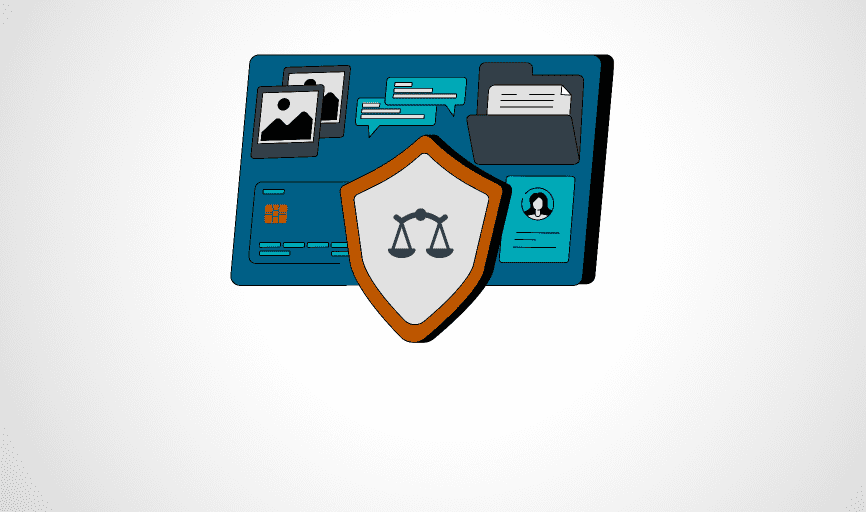
Media Ethics
The Media Ethics Initiative at the Center for Media Engagement endeavors to promote and produce research on cutting-edge topics in media and journalism ethics. Media ethics focuses on the choices, values, and consequences inherent in our media and communicative practices. Ongoing projects include expanding the line of media ethics case studies for use in journalism and communication courses and producing a free, online textbook on “Media, Ethics, and Democracy” that curates existing and new case studies, along with a framework focusing on the ethics of democratic citizenship.
Media Ethics
The Media Ethics Initiative at the Center for Media Engagement endeavors to promote and produce research on cutting-edge topics in media and journalism ethics. Media ethics focuses on the choices, values, and consequences inherent in our media and communicative practices. Ongoing projects include expanding the line of media ethics case studies for use in journalism and communication courses and producing a free, online textbook on “Media, Ethics, and Democracy” that curates existing and new case studies, along with a framework focusing on the ethics of democratic citizenship.
Read more › ›
2021 Highlights
Research and Publications
- Published 3 journal articles, 2 book chapters, and 14 media ethics case studies, released for free educational use
- Engaged 20 undergraduate and graduate research assistants to produce case studies and related resources
- Published “Comment Sections and the ethical demands of democracy” and “Online comment sections: Does taking them down enhance or hurt dialogue in a democracy?” in the Journal of Media Ethics
- Published “Connective democracy: The task before us” in Media Ethics
Presentations
- Presented “Bhimrao Ambedkar, John Dewey, and the Challenges of Social Democracy” as part of Tetso College’s series “The Relevance and Significance of Dr. B.R. Ambedkar: Today & Tomorrow”
- Presented “Ambedkar, Rhetoric, and Dalit Emancipation” as part of the International Webinar on Dalit Voices: Constitution, Literature and Society for the University of Mysore, India
- Delivered three keynote addresses at virtual celebrations for Indian civil rights leader Bhimrao Ambedkar
Signature Events
- Hosted Dr. Robert B. Talisse, the W. Alton Jones Professor of Philosophy at Vanderbilt University, for a virtual discussion, “Overdoing Democracy: The Problem of Political Polarization”
- In collaboration with UT Moody’s Department of Communication Studies, hosted Dr. Deen Freelon of UNC-Chapel Hill as part of a colloquium series on truth
Public Reach
- Ethics case studies utilized in courses at 112 universities and colleges, 41 school districts, and 23 learning platforms
- Program Director Scott Stroud was a co-signatory on an amicus curiae brief filed by the Ambedkar International Center in the State of California Fair Employment vs. Cisco Systems caste discrimination case

Propaganda
The Propaganda Lab at the Center for Media Engagement focuses on how emergent technologies are used in and around global political communication. Current research is shaping international debate on the manipulative political use of encrypted chat applications such as WhatsApp, Telegram, and Signal, and is central to ongoing analysis and reporting on the connection between digital surveillance using geolocation tools and resultant political micro-targeting and social media disinformation campaigns. Going forward, the team is expanding its research on encrypted chat applications into new geographical areas. This approach is in line with the lab’s strategic aim of positioning itself as the main research body on this topic delivering comparative analysis covering most areas of the globe.
Propaganda
The Propaganda Lab at the Center for Media Engagement focuses on how emergent technologies are used in and around global political communication. Current research is shaping international debate on the manipulative political use of encrypted chat applications such as WhatsApp, Telegram, and Signal, and is central to ongoing analysis and reporting on the connection between digital surveillance using geolocation tools and resultant political micro-targeting and social media disinformation campaigns. Going forward, the team is expanding its research on encrypted chat applications into new geographical areas. This approach is in line with the lab’s strategic aim of positioning itself as the main research body on this topic delivering comparative analysis covering most areas of the globe.
Read more › ›
2021 Highlights
Research and Publications
- Published 1 journal article, 2 book chapters, 5 white papers, and 12 commentary pieces
- Published “Disclosures of NYPD surveillance technologies raise more questions than answers” with Tech Policy Press, which was discussed by the New York City Council
- Published “Countering disinformation and protecting democratic communication on encrypted messaging applications” with the Brookings Institution
- Collaborated with organizations in the public and private sectors, including the ACLU, Open the Government, the Surveillance Technology Oversight Project (S.T.O.P.), the Constitution Project, the Centre for International Governance Innovation (CIGI), the Brookings Institution, the Carnegie Endowment for International Peace, the Aspen Institute, Facebook, Google, TikTok, and Twitter
Presentations
- Presented at conferences including the Association for Education in Journalism and Mass Communication, the International Communication Association, and Stanford’s Social Media and Democracy Conference
- Program Director Sam Woolley delivered the keynote speech at Politico’s AI Summit
Signature Events
- Hosted the Cognitive Security Conference (COGSEC), attended by 750 people
- Hosted a roundtable to explore problems related to the rise of “geo-propaganda,” geolocation-informed manipulation of public opinion
Public Reach
- Presented to policymakers, regulators, and intelligence/law enforcement services in the U.K., U.S., Australia, and the EU
- Covered by news organizations addressing national, international, and local audiences, including AFP, BBC 4, CNBC, El Espectador, Financial Times, FOX 7 Austin, Newsweek, KVUE, Texas Public Radio, The New York Times, The Washington Post, and Think (NPR)

Science Communication
The Science Communication Lab at the Center for Media Engagement focuses on building relationships between scientists and media organizations to improve public engagement with science. The lab’s research continues to chart, assess, and guide the growing cadre of key science communication stakeholders in North America and beyond. Two ongoing projects are examining the state of JEDI (Justice, Equity, Diversity, and Inclusion) within science communication fellowship programs and among U.S.-based STEM graduate students. Using the lenses of race-evasive-racism, critical race theory, and the ACCESS framework, the work is helping to reveal ways in which scientists-in-training, and those who support them, can create more inclusive, sustainable, and affirming spaces for science communication.
Science Communication
The Science Communication Lab at the Center for Media Engagement focuses on building relationships between scientists and media organizations to improve public engagement with science. The lab’s research continues to chart, assess, and guide the growing cadre of key science communication stakeholders in North America and beyond. Two ongoing projects are examining the state of JEDI (Justice, Equity, Diversity, and Inclusion) within science communication fellowship programs and among U.S.-based STEM graduate students. Using the lenses of race-evasive-racism, critical race theory, and the ACCESS framework, the work is helping to reveal ways in which scientists-in-training, and those who support them, can create more inclusive, sustainable, and affirming spaces for science communication.
Read more › ›
2021 Highlights
Research and Publications
- Published 9 journal articles, 2 white papers, and 2 book chapters
- Published “Communicating science across political divides,” based on the responses of U.S. citizens and aimed at helping scientists communicate effectively across the political spectrum
- Published “Landscape of the U.K. science engagement training community,” to examine the state of trainings being offered in the United Kingdom
- Published “Science communication training in North America: Preparing whom to do what with what effect?” and “American scientists’ willingness to use different communication tactics” in Science Communication
Presentations and Workshops
- Reached leading scientists, educators, policymakers, journalists, and students through participation in events and trainings for organizations
- Led webinars for scientists at the Alda-Kavli Learning Center at the Alan Alda Center for Communicating Science
- Presented at the American Association for the Advancement of Science, the American Geophysical Union, the Association for Education in Journalism and Mass Communication, the Inclusive Science Communication Conference, and the International Communication Association
Public Reach
- Hosted a U.K. Fulbright Scholar and Rita Allen Civic Science Fellow who works for the British Science Association (BSA)
- Continues to shape and guide efforts to improve STEM experts’ public engagement efforts through research projects that use theories and frameworks from strategic communication and social science
New Faculty
For democracy to function, the public needs an information ecosystem that helps them to learn, that enables the exchange of ideas, and that facilitates people working together.
-Talia Stroud, Director
Outreach
As we continue to expand our reach, we look for innovative ways to connect with newsrooms, platforms, and policy leaders. We look forward to new partnerships in the coming year.
This year, our team reached diverse audiences around the globe at events hosted by organizations such as:
Alda-Kavli Learning Center at the Alan Alda Center for Communicating Science
American Political Science Association
Association for Education in Journalism and Mass Communication
Center for Informed Democracy & Social-cybersecurity (IDeaS)
Center for Social Media and Politics
Common Ground for Texas
Facebook
International Communication Association
IMPRI Impact and Policy Research Institute
Library of Congress
New England Newspaper and Press Association
Politico’s AI Summit
Reuters Institute
Rita Allen Foundation
Stanford Center on Philanthropy and Civil Society
SXSW
Our expertise was featured in a variety of local, national, and international trade publications and media outlets including:
AFP
American Press Institute
Associated Press
BBC 4
Bloomberg
CNBC
Fast Company
International News Media Association
Journalism.co.uk
KVUE
Last Week Tonight with John Oliver
Newsweek
Nieman Lab
Poynter
Radio Television Digital News Association
Slate
Teen Vogue
Texas Public Radio
The Atlantic
The Los Angeles Times
The New York Times
The Seattle Times
The Verge
The Washington Post
Vice
Wired
Social Media Growth
